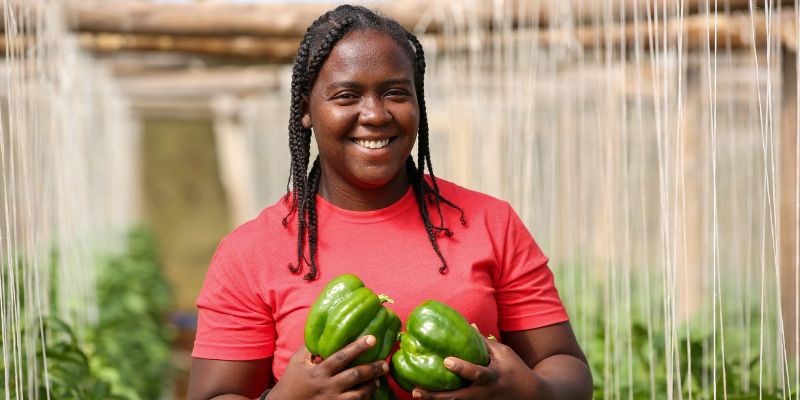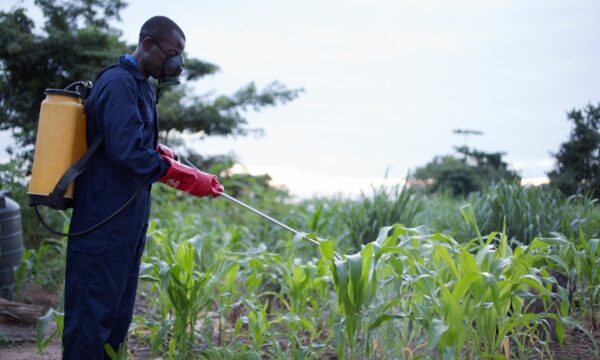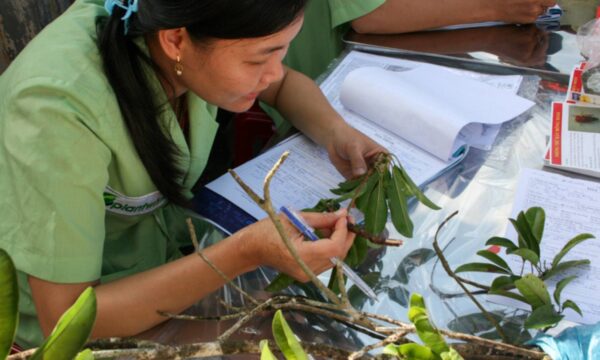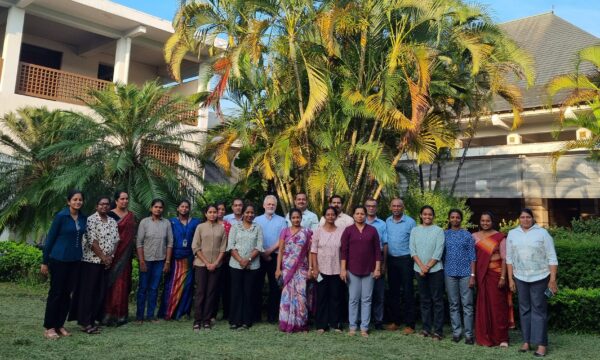CABI Academy‘s latest course, Introduction to Bioprotection Products, enables agricultural service providers to equip themselves with the knowledge and skills to support smallholder farmers using bioprotection products.
Bioprotection, also known as biocontrol, is a more sustainable approach to pest management. Unlike conventional chemical pesticides, bioprotection products are derived from natural sources, making them a safer alternative with minimal environmental impact.
CABI’s PlantwisePlus programme recognises the urgent need to increase farmers’ uptake of lower-risk plant protection products. The programme enhances the use of low-risk solutions to reduce reliance on high-risk farm inputs that adversely affect human health and biodiversity.

As such, the CABI Academy‘s latest course is an introduction to bioprotection products and includes practical guidance on choosing, using, and interpreting the results of bioprotection in the field. The online course is relevant to anyone interested in bioprotection but particularly benefits extension workers, agro-input dealers, and agricultural educators.
Course Structure and Content
The Introduction to Bioprotection Products course addresses the pressing need for knowledge and skills in applying bioprotection products correctly. It is a self-paced online course that spans 8-10 hours and comprises three core sections, which delve into the following topics:
– What are bioprotection products, and how do they work?
– Using bioprotection products to monitor pest insects
– Safety information and interpreting product labels
– Access to bioprotection products
– How to transport and store bioprotection products
– Making the most of bioprotection products
– Application and interpretation of results
The importance of bioprotection products
The CABI Academy’s latest course offers a crucial opportunity for agricultural service providers to equip themselves with the knowledge and skills to support smallholder farmers using bioprotection products. By incorporating bioprotection into their practices, learners can contribute to the sustainable future of agriculture, addressing global food security challenges and protecting livelihoods.
The new course sits alongside the CABI Bioprotection Portal, a tool designed to raise awareness of bioprotection among growers and advisors. In addition, users can identify and source biocontrol and biopesticides products. The CABI Bioprotection Portal complements the bioprotection course by enabling users to put their knowledge into practice. It is available on smartphones, tablets and desktops.
So why are bioprotection products so important?
Environmentally safe
The primary advantage of biopesticides lies in their minimal impact on the environment. Unlike chemical pesticides, which can leave harmful residues in soil, water bodies, and food crops, biopesticides degrade rapidly, reducing the risk of environmental contamination. Their non-toxic nature ensures that beneficial insects, birds, and other non-target organisms remain unharmed, promoting overall biodiversity and ecosystem health.
Less hazardous to humans
Chemical pesticides have raised concerns over potential health hazards for farmers, consumers, and communities. Biopesticides, on the other hand, are generally considered safe for humans due to their natural origin and low toxicity levels. Their use contributes to a healthier farming environment and a safer food supply.
Reduced residual buildup
The accumulation of pesticide residues in crops is a pressing concern for food safety. Consumers are increasingly conscious of the chemicals present in their food, demanding produce with lower pesticide residues. Biopesticides break down more quickly, leaving little to no residues on the crops.
Managing pesticide resistance
Continuous exposure to chemical pesticides can lead to the emergence of resistant pest populations, rendering the pesticides ineffective over time. Biopesticide and biocontrol products use a variety of modes of action, reducing the chance of pest resistance. In addition, these modes of action are usually more complex than those of chemical pesticides. As a result, pests are less likely to develop resistance.
Sustainable agriculture
Biopesticides enable farmers to protect their crops while maintaining soil health, preserving beneficial insect populations, and supporting the natural balance of ecosystems. In conjunction with other sustainable practices like crop rotation and integrated pest management (IPM), biopesticide and biocontrol products contribute to long-term agricultural viability.
A more sustainable future
With more than 2,000 active learners expected to partake in the Bioprotection Course by early 2024, there is hope that these efforts will pave the way for a more resilient and sustainable agricultural landscape. All the more pertinent in the face of an ever-growing population and changing environmental conditions.
Sign up to the Introduction to Bioprotection Products online course.
PlantwisePlus
PlantwisePlus is financially supported by the Directorate-General for International Cooperation (DGIS), Netherlands; European Commission Directorate General for International Partnerships (INTPA, EU); the Foreign, Commonwealth & Development Office (FCDO), United Kingdom; the Swiss Agency for Development and Cooperation (SDC); the Australian Centre for International Agricultural Research (ACIAR); the Ministry of Agriculture of the People’s Republic of China (MARA)
Related News & Blogs
How do pest risk registers address the spread of plant pests in Africa?
Pest risk registers can help to solve problems in agriculture, addressing the growing global threat of plant pests. Moreover, changing weather patterns, led by rising temperatures, are causing them to reproduce faster and expand into new regions. In ad…
10 July 2025




